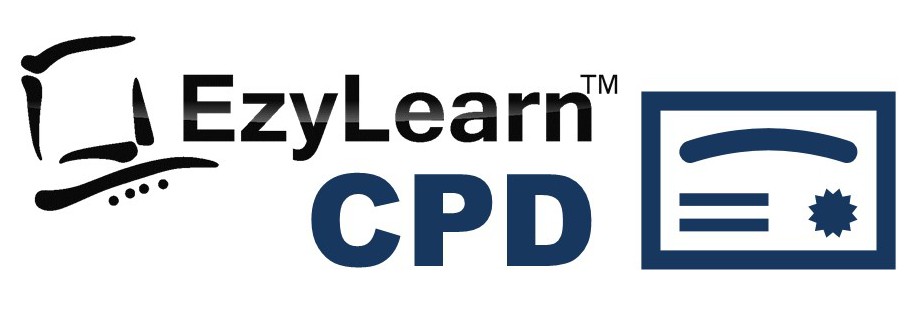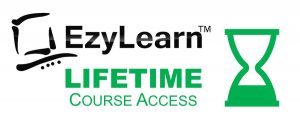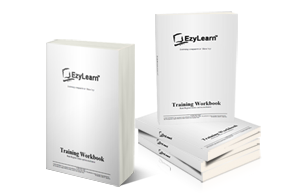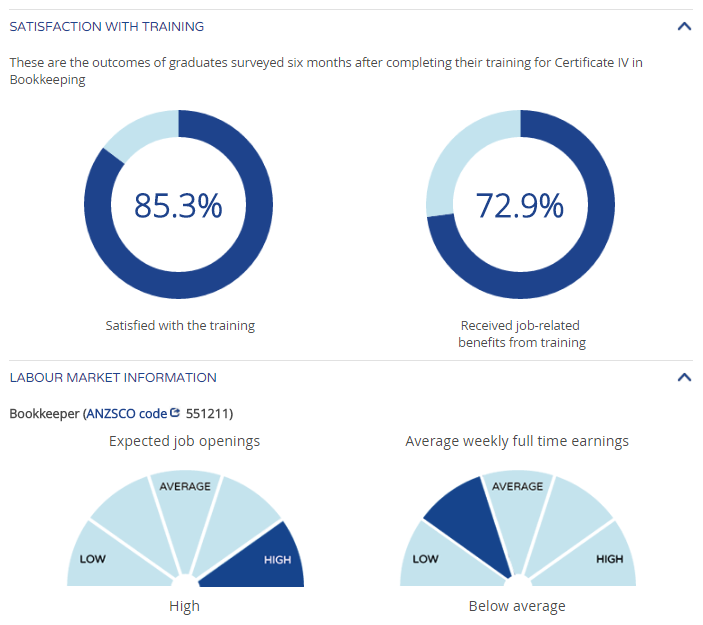Why Business People Need a Bookkeeping Trainer
 IN ONE-TO-ONE training sessions, your job, as the trainer, is to help your client (the student) achieve their individual goals. This is very different to classroom or group training, where the purpose is to get students through the prescribed course content in the prescribed time.
IN ONE-TO-ONE training sessions, your job, as the trainer, is to help your client (the student) achieve their individual goals. This is very different to classroom or group training, where the purpose is to get students through the prescribed course content in the prescribed time.
Now that it’s well-known that nearly every person learns at a different pace to the person sitting next to them, online training has become popular because it allows an individual to learn at their own pace, rather than trying to keep up with the rest of the class.
Online vs. one-to-one training
Online and one-to-one training are similar in many ways. They both allow students to learn at their own pace, to pick and choose which modules they start and end with, and to practice until they feel confident that they’ve learned the content thoroughly.
But one-to-one training provides students with something online training can’t: guidance from an expert. This is important for some people who don’t feel comfortable learning on their own, or who need the added motivation of having a trainer with them.
People will pay for the benefits
 The cost of one-to-one training is often justified by the benefit. For businesses, they can get paid faster if their bookkeeper has received in-depth training in MYOB, QuickBooks or Xero; they may win more tenders and save time working on them if their staff have advanced Word skills; have better reporting because their staff have advanced Excel skills; or save hundreds by increasing their productivity through their staff’s use of apps like Google G Suite.
The cost of one-to-one training is often justified by the benefit. For businesses, they can get paid faster if their bookkeeper has received in-depth training in MYOB, QuickBooks or Xero; they may win more tenders and save time working on them if their staff have advanced Word skills; have better reporting because their staff have advanced Excel skills; or save hundreds by increasing their productivity through their staff’s use of apps like Google G Suite.
The question for trainers is whether they can make it worthwhile printing out workbooks, driving to their client, finding parking, and spending their time training students in-person.
Combining online and one-to-one training
Some students will only require guidance on certain modules or at certain points during their training. For instance, most people need help getting started with MYOB, but only require help during the advanced modules of Excel. That has a lot to do with each individual person’s soft skills, and experience with the software package in question. (Most people are already very familiar with Excel, for example, but have almost no knowledge of MYOB until they start learning.)
Combining online and one-to-one training is a great way to keep your overheads down as a trainer (printing, petrol, parking costs, etc) and provide your client with an affordable training option that still helps them achieve their goals. EzyLearn online training courses are endorsed and by industry professionals, accountants, bookkeepers and registered BAS agents alike.
***
If you’re an experienced bookkeeper, you can become a training partner: find out how.
The benefits of combining one-to-one training with the structure of an online training course
I’ve been a Bookkeeper for more than 20 years and find more and more business owners are asking for training because today’s bookkeeping tasks aren’t quite as easy as the software companies make out. Learning how to use bookkeeping software one-to-one combined with an online course is a great way to learn because, as a trainer, I cover all the topics my clients need in a logical order which follows the flow of the course and which will also help them in their daily operations, but clients can also learn what they need to specific to their own situation.”
— Tracey O’Neill, Registered BAS Agent and Bookkeeper, QuickBooks Pro Advisor






 That meant that students could complete an EzyLearn course and get a free ICB student membership. The ICB charged us $1,200 a year, which we thought was a good investment, as it gave aspiring BAS agents a foot-in-the-door with an industry organisation, so they could continue their career development.
That meant that students could complete an EzyLearn course and get a free ICB student membership. The ICB charged us $1,200 a year, which we thought was a good investment, as it gave aspiring BAS agents a foot-in-the-door with an industry organisation, so they could continue their career development. 








 Online delivery of this content allows your staff to complete the course at their own pace, in an informal environment — at home or at their desk at work, rather than in a dedicated training centre on a dedicated day — and it also allows you to monitor their progress.
Online delivery of this content allows your staff to complete the course at their own pace, in an informal environment — at home or at their desk at work, rather than in a dedicated training centre on a dedicated day — and it also allows you to monitor their progress. At EzyLearn you can choose from
At EzyLearn you can choose from 

 A lot of our enquiries regarding
A lot of our enquiries regarding 



 There are several associations for bookkeepers who want to become Registered BAS Agents but the most progressive is the Institute of Certified Bookkeepers. This organisation came from the UK where they are still a leading member group, when the Australian Bookkeeping Industry began the process of regulation and they recognised the benefit of letting their partners use their logo to demonstrate their membership status.
There are several associations for bookkeepers who want to become Registered BAS Agents but the most progressive is the Institute of Certified Bookkeepers. This organisation came from the UK where they are still a leading member group, when the Australian Bookkeeping Industry began the process of regulation and they recognised the benefit of letting their partners use their logo to demonstrate their membership status. Finally, If you decide you just want to learn how to use the software using practical exercises and following step by step processes that are performed in most companies everyday then enrol into one of our EzyLearn courses. The Certificate we provide is a Certificate of Completion once all our Knowledge Reviews have been completed successfully and these knowledge reviews are at the end of each section of each course. In the MYOB course we have 5 courses.
Finally, If you decide you just want to learn how to use the software using practical exercises and following step by step processes that are performed in most companies everyday then enrol into one of our EzyLearn courses. The Certificate we provide is a Certificate of Completion once all our Knowledge Reviews have been completed successfully and these knowledge reviews are at the end of each section of each course. In the MYOB course we have 5 courses.











